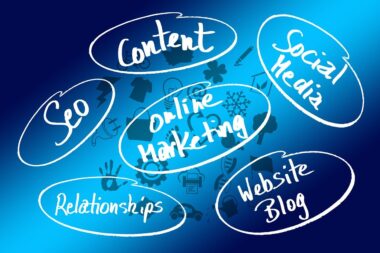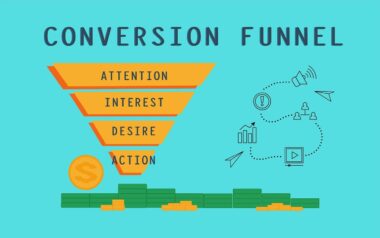How to Boost Sales with Effective Marketing Automation Strategies
Marketing automation is a powerful tool that helps businesses streamline their marketing efforts and enhance their sales strategies. By implementing automation, companies can nurture leads more efficiently, providing tailored content to each potential customer. This approach not only saves time but also allows sales teams to focus on closing deals rather than mundane tasks. As organizations adopt these systems, they can expect increased engagement from prospects and existing customers alike. Automation optimally delivers the right message at the right time, thus nurturing leads through the sales funnel. The data generated from these initiatives also fosters deeper insights into customer behavior and preferences, which can inform future marketing strategies. Furthermore, businesses equipped with automation can track their marketing campaigns in near real-time, making adjustments quickly as necessary. This flexibility allows marketers to adapt their strategies promptly, ensuring maximum effectiveness. Overall, marketing automation represents a shift toward more strategic approaches in sales and marketing, driving growth quantitatively. Businesses should start considering these tools now, enhancing their capabilities to meet the challenges posed by today’s competitive landscape.
Understanding Your Audience
One of the key components of successful marketing automation is understanding your audience. Without this insight, campaigns may not resonate with customers, leading to minimal engagement. To truly harness the power of automation, it’s crucial to segment your audience based on different criteria such as demographics, preferences, and behaviors. By leveraging customer data and analytics, businesses can build targeted lists, allowing for personalized messaging to each segment. Personalized communication has proven to significantly increase response rates and customer loyalty. Marketers must invest time in researching their target audience, utilizing tools such as surveys and social media analytics to gather valuable feedback. This information will inform your automation strategy, enabling content customization that matches audience interests precisely. Additionally, using buyer personas can help visualize the different segments and tailor automation efforts methodically. When campaigns are aligned with audience needs, the likelihood of successful conversions increases noticeably. Moreover, continuous analysis of campaign performance provides ongoing insights, refining audience understanding further. Consequently, entrepreneurs can make informed decisions about future marketing efforts, ensuring sustained business growth.
Another essential aspect of effective marketing automation is setting clear objectives. Defining the goals you want to achieve is crucial before implementing any automation tools. Whether the aim is to increase lead generation, enhance customer engagement, or improve overall sales conversion rates, clear objectives provide a roadmap to follow. This structure allows marketing teams to focus their efforts on the most impactful strategies. For instance, setting specific targets can also help allocate resources where needed, ensuring maximum efficiency. Subsequently, monitoring progress against these goals ensures that strategies remain aligned with expectations, enabling necessary adjustments as required. Furthermore, measuring the effectiveness of automated campaigns allows for detailed reporting that highlights areas of improvement. These insights can help businesses identify underperforming segments or campaigns and refine their approaches moving forward. Creating benchmarks for success will promote accountability and motivate marketing teams to achieve their set objectives consistently. Finally, when marketing automation aligns with key performance indicators, teams can channel their energy into areas that yield substantial returns, ultimately benefiting the entire organization.
Choosing the Right Tools
Selecting the appropriate marketing automation tools is pivotal for achieving desired outcomes. With so many options available, businesses must evaluate their specific needs and budget constraints carefully. It’s essential to select a platform offering comprehensive features like email marketing, lead nurturing, and analytics reporting. A user-friendly interface can simplify adoption, ensuring your team can harness the tools effectively. Additionally, integrating the automation platform with existing systems guarantees that information flows seamlessly, minimizing data silos. Consider whether the tool offers scalability, as businesses may require additional features over time. Trial versions or demos can provide valuable insights into a platform’s functionalities before committing to a long-term investment. Consulting with other businesses or reading reviews can also provide guidance on selecting the best options. Excellent customer support from the provider is another significant factor, ensuring that assistance is readily available whenever challenges arise. In summary, choosing the right marketing automation tools is crucial for your business’s success, enabling you to execute targeted campaigns while optimizing resources efficiently.
Another essential aspect of successful marketing automation is content creation. Automated systems thrive on relevant and engaging content to capture your audience’s attention. It’s vital to develop high-quality content that resonates with your targeted segments. This content might include blog posts, informative articles, infographics, or engaging videos tailored to audience preferences. By consistently delivering valuable information, brands build trust and establish authority in their respective niches. It’s crucial to invest time in understanding the topics that appeal most to your audience while ensuring that the messaging aligns with their needs. Automated emails, newsletters, and social media posts should carry this engaging content to optimize customer interaction fully. Additionally, ensuring consistency in branding and tone creates a cohesive experience for the audience. Utilizing SEO best practices in content creation will further enhance visibility, placing your messages in front of the right people at the right time. Regularly updating your content library is necessary to keep information fresh and valuable to your audience. By embracing a content-driven approach, businesses can leverage marketing automation to foster deeper relationships with their customers.
Analyzing and Optimizing Campaigns
Once marketing automation strategies are in place, it’s crucial to analyze and optimize campaign performance regularly. Collecting data helps refine efforts and identify aspects that require adjustment. By closely tracking key performance indicators, businesses can discover trends and patterns that inform future strategies. Metrics such as open rates, click-through rates, and conversion rates are essential in evaluating the effectiveness of automated campaigns. Furthermore, segmentation analysis can unveil insights into the success of different approaches for various audience categories. Continuous optimization leads to a better understanding of your customers, documenting their responses to different messages. As marketers identify which campaigns yield significant results, they can replicate successful strategies and phase out underperforming ones. A/B testing can also enhance optimization efforts, allowing businesses to experiment with different subject lines, messaging, or visuals to determine the most effective combinations. This iterative process ensures that marketing automation channels become increasingly effective over time, fostering sustainable growth. Indeed, adapting to changes allows businesses to stay relevant in a competitive marketplace while maximizing ROI.
In conclusion, effectively boosting sales through marketing automation requires attention to detail in multiple areas. Understanding your audience, setting clear objectives, choosing the right tools, creating engaging content, and continually analyzing campaigns are fundamental for success. By synthesizing these elements, businesses can implement marketing automation that not only streamlines processes but also enhances customer relationships and drive profit. The necessity of a cohesive strategy cannot be overstated, as divergence amongst these components can lead to missed opportunities. As the marketplace evolves, adopting marketing automation at every stage can empower businesses to remain competitive. Embracing this technology enhances efficiency while allowing marketers to focus on creativity and strategic planning. Integration of marketing automation not only encourages consistency and enables responsiveness but also fosters innovation. Ultimately, the goal is to leverage these strategies to create memorable customer experiences, making your brand stand out in a crowded space. Taking the time to implement these practices can set your organization up for long-term success and sustainability in the digital age.





